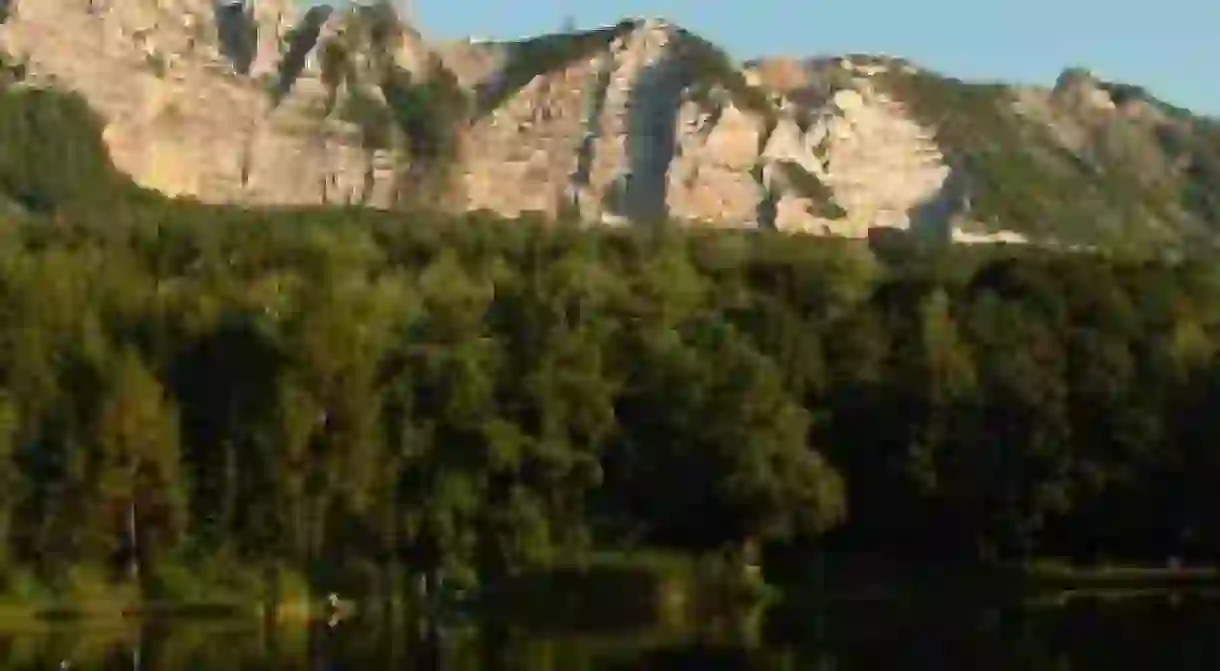The Most Beautiful National Parks In Hungary

Hungary is undoubtedly a country of stunning natural landscapes. No wonder it has ten large national parks, situated in various regions of the country, many of which are also listed as World Heritage Sites. Check out the five most magnificent of these parks with beautifully preserved natural landscapes.

Aggtelek National Park
Park

Aggtelek National Park is a national park in Northern Hungary in the Aggtelek Karst region. The park has been listed as a UNESCO World Heritage Site and is a magical land of caves and stunning trails above them. Some must-sees in the park include the stalactite fairytale-like Baradla Cave, the largest stalactite cave in Europe. Part of Baradla Cave is situated in the territory of Slovakia and visitors sometimes get to cross the border underground. Besides cave tours, there are also guided walks in the park on foot, rides on horse or bicycle, walks in villages and handicraft programs designated to help the visitors get acquainted with the natural and cultural heritage of the Aggtelek region. Those interested may also learn about and try out traditional bread baking.
Hortobágy National Park
Park

Hortobágy is an 800 square kilometers national park located in eastern Hungary filled with folklore and cultural history. The park, which forms part of the Great Plain of Hungary, has been listed as a World Heritage Site. It is situated in an area where a unique shepherding culture has evolved over many centuries, manifesting itself in distinctive traditional styles of clothing and architecture, and the tending of particular types of animals that are not found anywhere else. There are some great attractions to visit in Hortobágy such as the Shepherd Museum which exhibits in detail how animals are raised and how herdsmen live on the Puszta. Be sure to visit the Hortobágy Sanctuary where a unique presentation of the wildlife of the area is housed in a large sanctuary building. Large carnivore and smaller species, difficult to be observed in nature, are accommodated in kennels arranged similarly to their natural habitats. If you enjoy hiking, take the Tisza Lake Water and Nature Trail which offers a glimpse into the wonderful marshy world around Lake Tisza.
Bükk National Park
Museum, Park
Bükk National Park is situated in the Bükk Mountains in Northern Hungary. Bükk’s important geological features include various karst formations within its limestone mountains – particularly caves, once inhabited by prehistoric people, swallow-holes, and ravines. The Bükk Hills boast of an enormously rich plant and animal kingdom thanks to the area’s unique climate and its unusually varied terrain. Numerous species of plants and animals in Hungary can only be found in this part of the country. Around ninety species of birds, including many endangered species, make their nesting ground in the park. There are two caves in the Bükk which are open to visitors: the dripstone Szent István Cave and the limestone Anna Cave. There is also a Folk Museum at Oszla which is well worth a visit. Among numerous walking and cycling trails in the park is the Millennium Nature trail, featuring a lookout tower and highlighting the abundant natural heritage of the Bükk, with particular reference to the ecological and economic role of forestry. Bükk National Park | © Horvabe/WikiCommons
Fertő–Hanság National Park
Park

Fertő–Hanság is a national park situated in North-West Hungary. The marshy area of the park is a land whose past myths and legends talk about. The Fertő and Hanság areas are outstandingly rich in natural treasures and are listed as a UNESCO World Heritage Site. Some of the must-dos in the park include the Istók Hany Nature trail, a fascinating excursion following the footsteps of Istók Hany, a mythical creature of Hungarian folklore. Esterházy Bird Observation Centre is also an interesting place to visit, featuring hundreds of fascinating bird and insect specimens native to the Hanság. Saline lakes at Mekszikópuszta feature lookout towers from which to observe the spectacular views of the surrounding areas. Along the way, billboards will provide visitors with information about the local flora and fauna.
Duna–Dráva National Park
Museum, Park
Duna–Dráva National Park is located in the southwest of Hungary. The majority of the national park sites are located within the Danube and Drava flood land areas. Some of the highlights among the attractions available in the park include the Dráva Gate Visitor Centre with its interactive exhibition about the region’s nature, indigenous Hungarian farm animals, Üde Rétek Natural Trail, and various activities for children. Abaliget Cave and Bat Museum is also informative and fun to visit. For an underground experience, be sure to check out the Cave of Mészégető Springs which offers exciting cave adventures in overalls with tour guides. @ Duna–Dráva National Park | © WikiCommonsBy Ieva Matiejunaite













